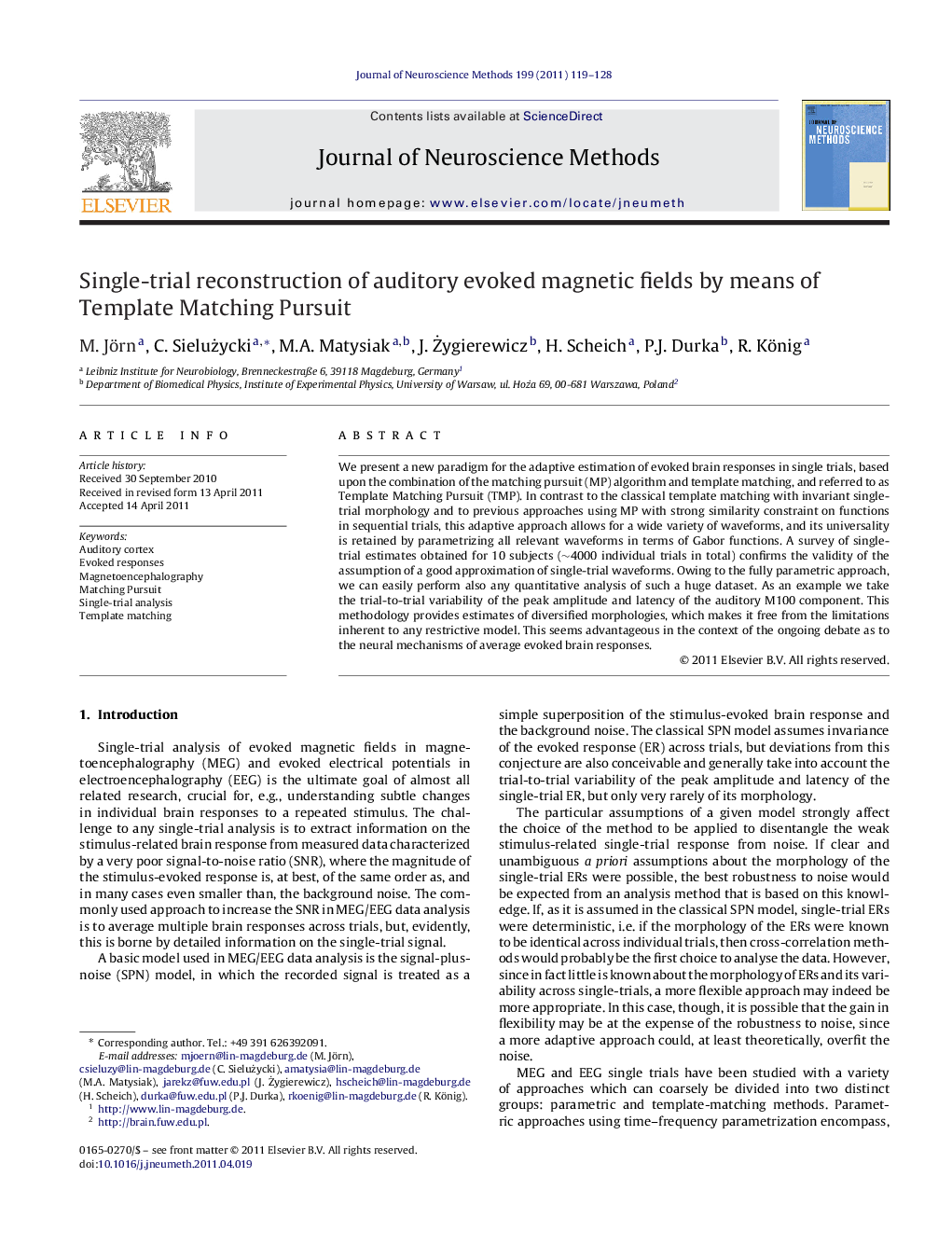| Article ID | Journal | Published Year | Pages | File Type |
|---|---|---|---|---|
| 4335404 | Journal of Neuroscience Methods | 2011 | 10 Pages |
We present a new paradigm for the adaptive estimation of evoked brain responses in single trials, based upon the combination of the matching pursuit (MP) algorithm and template matching, and referred to as Template Matching Pursuit (TMP). In contrast to the classical template matching with invariant single-trial morphology and to previous approaches using MP with strong similarity constraint on functions in sequential trials, this adaptive approach allows for a wide variety of waveforms, and its universality is retained by parametrizing all relevant waveforms in terms of Gabor functions. A survey of single-trial estimates obtained for 10 subjects (∼4000 individual trials in total) confirms the validity of the assumption of a good approximation of single-trial waveforms. Owing to the fully parametric approach, we can easily perform also any quantitative analysis of such a huge dataset. As an example we take the trial-to-trial variability of the peak amplitude and latency of the auditory M100 component. This methodology provides estimates of diversified morphologies, which makes it free from the limitations inherent to any restrictive model. This seems advantageous in the context of the ongoing debate as to the neural mechanisms of average evoked brain responses.
► Template Matching Pursuit (TMP) models single-trial evoked brain responses. ► Trial-to-trial variability of the auditory M100 is efficiently modelled with TMP. ► TMP provides estimates of diversified morphologies. ► TMP reveals the decline of the M100 amplitude and latency across consecutive trials.
